
Prime Minister’s Visit to China Raises Concerns Over Controversial Projects
Prime Minister Pushpa Kamal Dahal ‘Prachanda’ is set to make a direct visit to China from New York, USA, following his participation in the United Nations General Assembly. His trip to China coincides with the opening ceremony of the 19th edition of the Asian Games in Hangzhou, scheduled for September 23.
While expectations existed for Prime Minister Prachanda to meet Chinese President Xi Jinping twice, it appears they will only have one scheduled meeting. During this visit, Prachanda is also slated to meet with his Chinese counterpart, Li Qiang, and National People’s Congress Standing Committee Chairman Zhao Leji.
The focus of discussions surrounding Prime Minister Prachanda’s visit is centered on potential treaty agreements, the status of previous agreements, and their long-term implications. Analysts are particularly concerned about the possibility of China capitalizing on Prime Minister Prachanda’s somewhat unpredictable nature.
A recent hint of this intention emerged during Prachanda’s visit to Nepal a few days ago. He discussed the construction of the China-Nepal Friendship Industrial Park in Damak with the then Prime Minister and CPN-UML President, KP Sharma Oli. This initiative aimed to appease residents of his home district and strengthen ties with China.
As the Investment Board Nepal resumes preparations for this project, which had been stalled due to compensation disputes and vehement local opposition, the likelihood of Prime Minister Prachanda presenting it as a showcase for Chinese investors has increased.
Furthermore, there is growing suspicion that he may follow China’s lead and secure an agreement related to the Pokhara International Airport, thereby reinforcing China’s Belt and Road Initiative (BRI) claims.
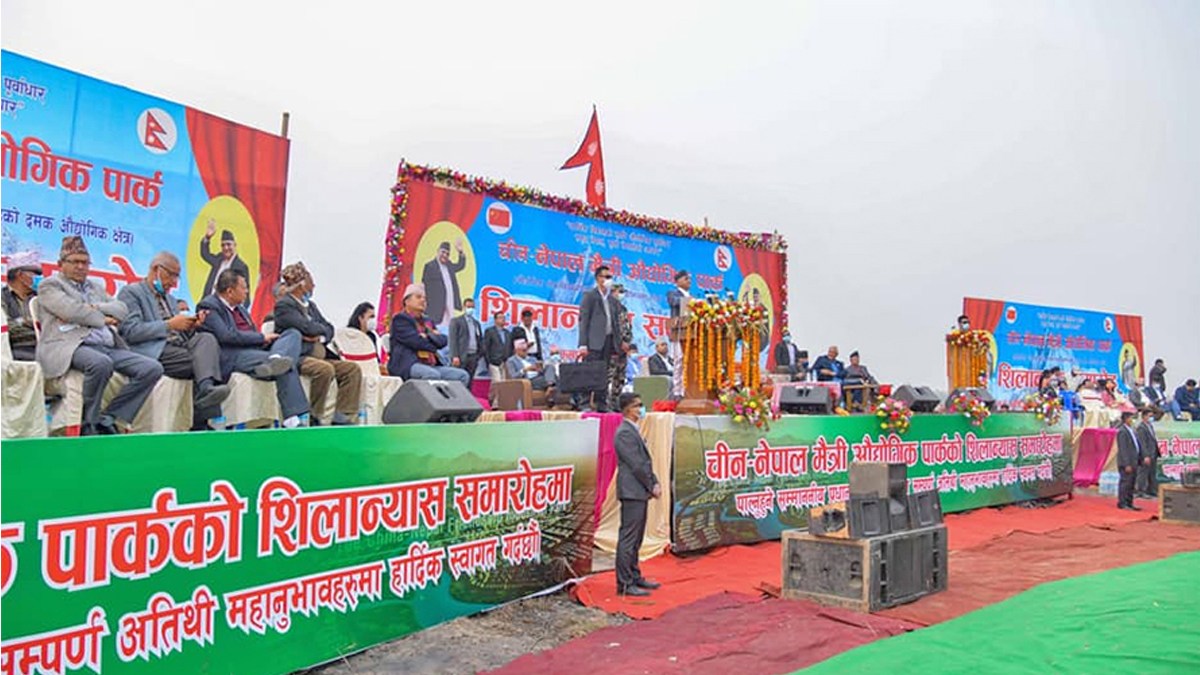
In response to Prime Minister Prachanda’s directives, the 55th meeting of the Board of Investment held on August 25th established a negotiation committee under the coordination of Sushil Bhatt, Chief Executive Officer of the Board of Investment. This committee’s mandate includes negotiating with the developer regarding the China-Nepal Maitri Industrial Park in Damak and finalizing the Project Development Agreement (PDA). The committee is actively pursuing investment for the project.
Efforts are being made to advance this project despite lingering questions about its necessity for Nepal. Additionally, concerns remain unresolved regarding the compensation dispute and local objections to the project.
The ambitious ‘China-Nepal Friendship Industrial Park Damak,’ introduced by Nepal Communist Party (UML) Chairman KP Sharma Oli in his home district, has faced numerous setbacks. Implementation of this plan would significantly extend Chinese business dominance in Nepal while potentially dispossessing local landowners.
According to the agreement, the park’s construction will span ten years, with Chinese management for 40 years before its eventual handover to Nepal.
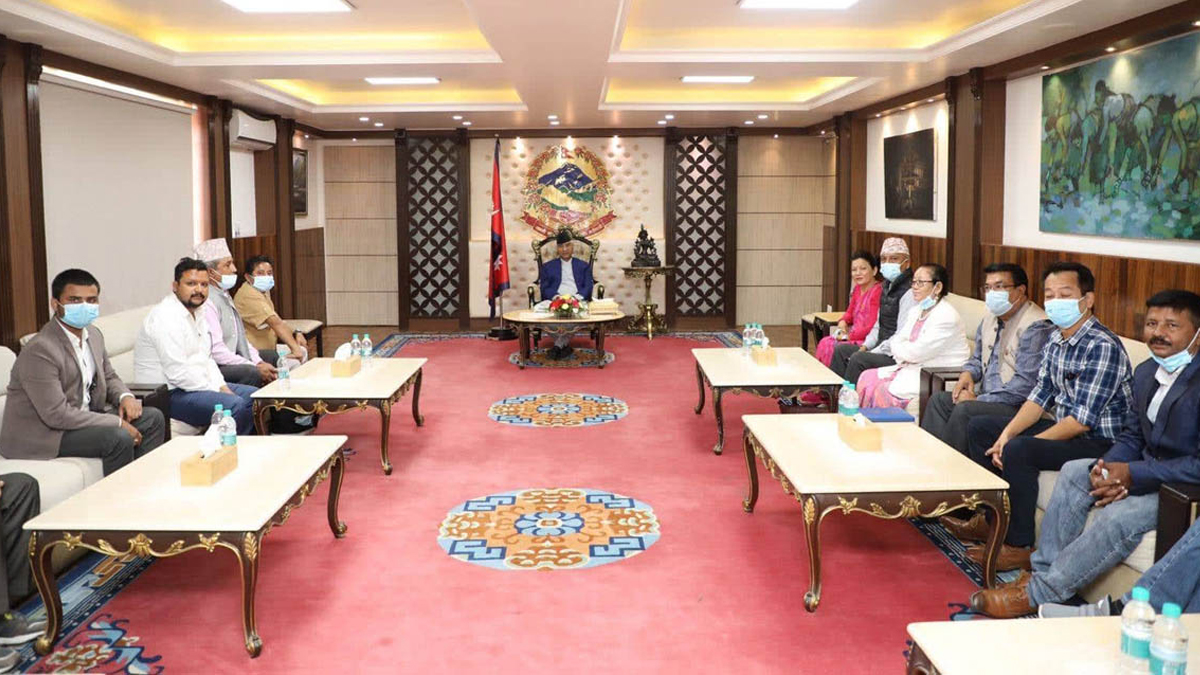
The Damak Clean Park in Jhapa Damak is among the projects intended to attract Chinese companies. The park, which was initially hailed as a means to improve the country’s economic conditions, provide employment to one lakh people, and revolutionize the industrial sector, has been at a standstill for an extended period. Furthermore, its purpose has been viewed by some as an attempt to extend Chinese influence closer to the Indian border.
Since land acquisition for the park’s construction began, eight years have passed, and three years have transpired since the foundation stone was laid by then Prime Minister KP Sharma Oli, who also represents Damak in his constituency. While there was initial excitement among locals when the project was announced, it has since been plagued by corruption, compensation disputes, and Chinese side irresponsibility.
The government commenced land acquisition for the industrial park via a cabinet decision on March 14, 2016. However, only half of the required land, expected to span 2,100 bighas in Damak Municipality, Gauradah Municipality, and Kamal Rural Municipality, has been acquired to date.
The Investment Board approved an initial investment of NPR 64 billion in September 2019 for the first phase of construction. Approval was granted to the Lhasa Economic and Technology Development Zone Jingping Joint Construction Company to introduce foreign investment. The board also sanctioned a detailed feasibility study of the park conducted by ‘Damak Clean Industrial Park Pvt Ltd.’
Despite these processes, construction progress on the project remains stagnant.
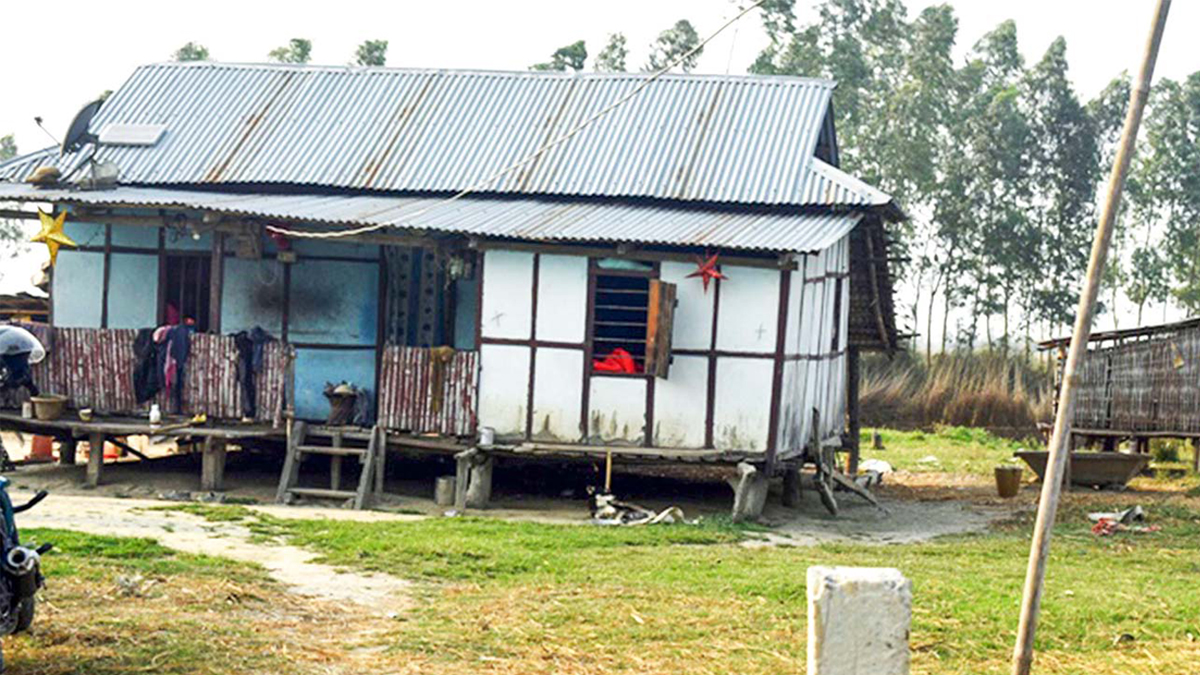
Key Controversies
The primary point of contention revolves around compensation for land acquisition for the park’s construction. The Damak Clean Park Protection Committee has been formed due to dissatisfaction with the inadequate compensation offered by the government. The committee has repeatedly submitted memorandums to top government officials, urging resolution of the issue.
The committee’s demands include transparency in project operations, the formation of an all-party committee for park operation, negotiation with landowners to address compensation problems, and the release of a white paper outlining the park’s purpose and details for public disclosure.
Victims of the Damak Clean Park assert that proper compensation was never provided, and the distribution process lacked fairness. Landowners were compelled to protest when the government’s compensation assessment committee unilaterally appraised land values without involving local residents.
The controversy deepened as the assessment, according to the Land Acquisition Act, was substantially lower than the government’s rates. The committee claimed that the assessment undervalued land by 80 percent.
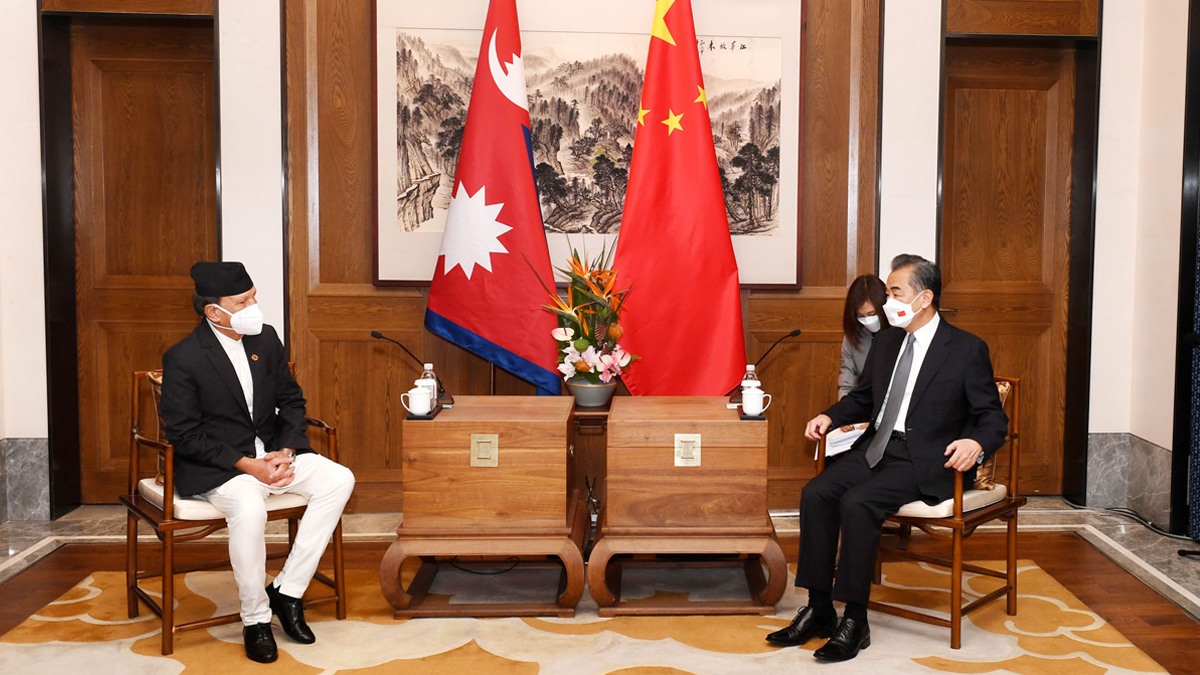
One-sided Interests of the Chinese Side
The Chinese company, Lhasa Economic and Technology Development Zone Jingping Joint Construction Company, initially committed to constructing the park. However, the Chinese side has since severed communication.
Following political changes in Nepal, it is believed that companies affiliated with China’s state apparatus withdrew due to the failure of their security and intelligence strategy.
Rajendra Kandel, Deputy Director of Industrial Area Management Limited, stated that land compensation distribution represents the only work currently undertaken regarding the park. He confirmed that the Chinese side has not initiated any work and is not present in Nepal.
The park’s construction has been unable to proceed due to the absence of a Project Development Agreement (PDA) essential for securing foreign investment. Anticipated discussions on the park’s construction during the visit of Chinese Foreign Minister Wang Yi failed to materialize.
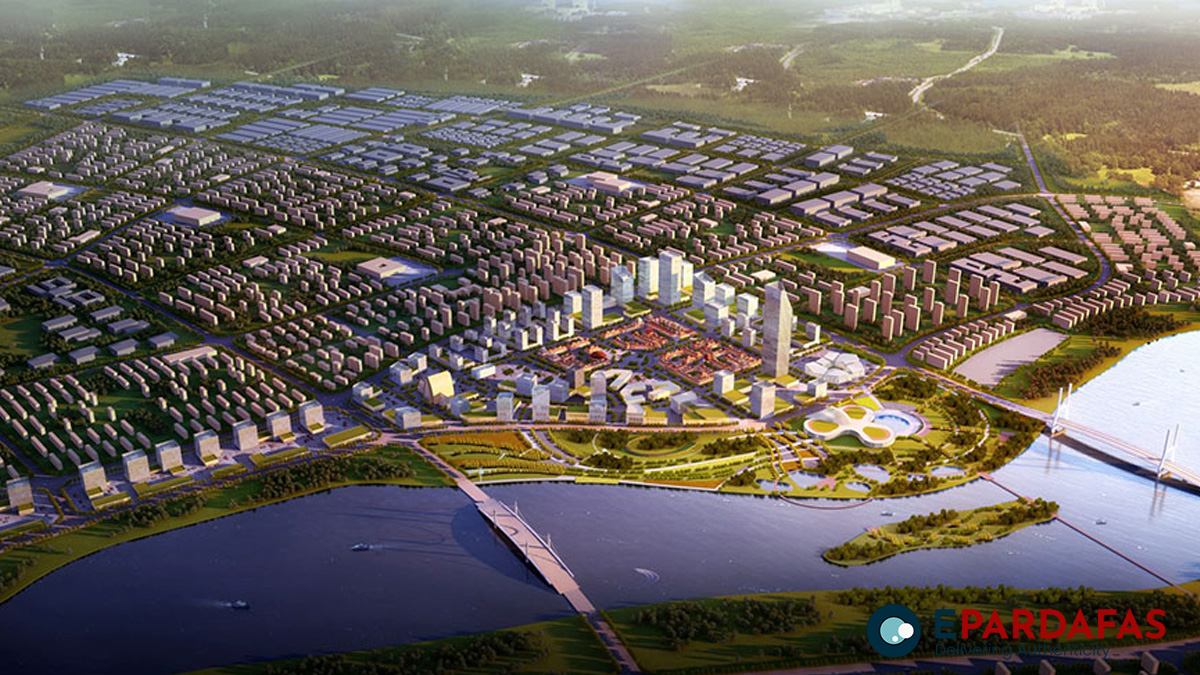
Project Cost and Nature
As per the Detailed Project Report (DPR) prepared by the Chinese side, the park’s construction cost is estimated at NPR 336 billion, equivalent to the cost of constructing the Kathmandu-Raxaul railway. However, a recent public final survey indicated that the railway would cost NPR 3 trillion 20 billion.
The park will be developed under the concept of ‘land restoration, infrastructure construction, operation, and transfer’ through public-private partnership. It will span 2,100 bighas in Damak Municipality, Kamal Rural Municipality, and Gauradah Municipality, encompassing Ukas land along the river.
The investment will be undertaken by the Lhasa Economic and Technology Development Zone Jingping Joint Construction Company. The government had previously stated in the budget for the fiscal year 078-79 that the park’s construction would be completed within two years.
As Prime Minister Prachanda embarks on his visit to China, concerns persist about his engagement with controversial projects that have faced significant challenges and opposition. It remains to be seen how these issues will be addressed and what implications they may hold for Nepal’s future.

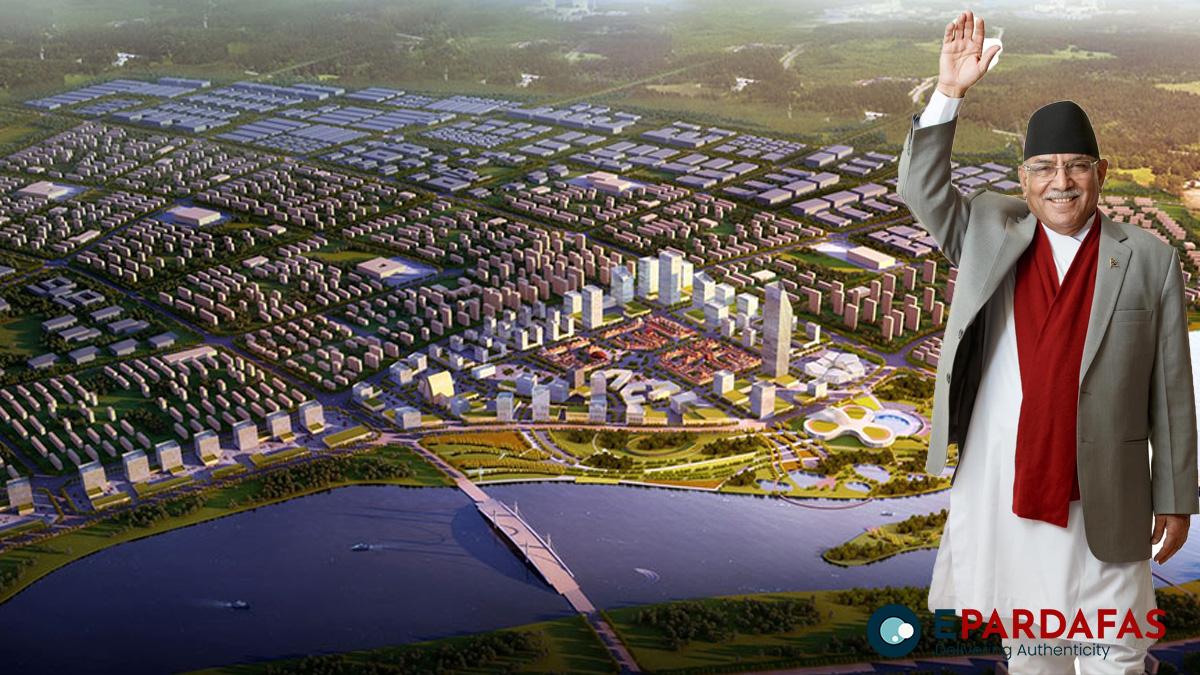





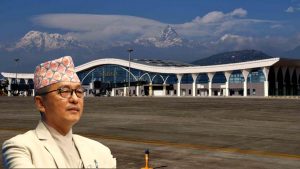





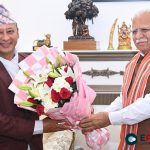
Comments